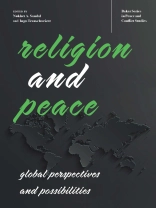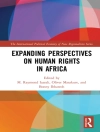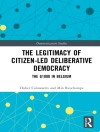Can religion help societies achieve peace and stability? What actions can religious leaders take to facilitate conflict resolution? This book addresses these critical questions in terms of numerous contemporary conflicts within and between countries.
In the aftermath of the 9/11 attacks, public attention to religion shifted away from its relationship to politics and toward its connection to violence in civil conflicts, wars, and terrorism. Religion’s role in sowing discord became more prominent than its ability to unify. Only recently have discussions turned toward the positive impact of religion and spirituality in the public sphere and to the role of faith in resolving diplomatic, political, and social problems. The essays in this book contribute to this discourse by examining past, present, and future opportunities to promote peace through religion and spirituality.
The contributors to this volume explore topics such as humanitarianism, philosophy, counterextremism, human rights, rituals, populism, foreign policy, and environmentalism. Some of the chapters approach these topics from a transnational perspective, while others focus on specific countries in Africa, Asia, Europe, Latin America, and the Middle East.
Contributors:
- Jonathan C. Agensky
- Slavica Jakelić
- Afra Jalabi
- Brandon Kendhammer
- Loren D. Lybarger
- Cecelia Lynch
- Peter Mandaville
- Jeremy Rinker
- Margaret M. Scull
- Amy Erica Smith
เกี่ยวกับผู้แต่ง
Ingo Trauschweizer is a professor of history and former director of the Contemporary History Institute at Ohio University, where he teaches courses on American and global military history, the Cold War, and the Vietnam War. His books include The Cold War U.S. Army: Building Deterrence for Limited War and Maxwell Taylor’s Cold War: From Berlin to Vietnam.












